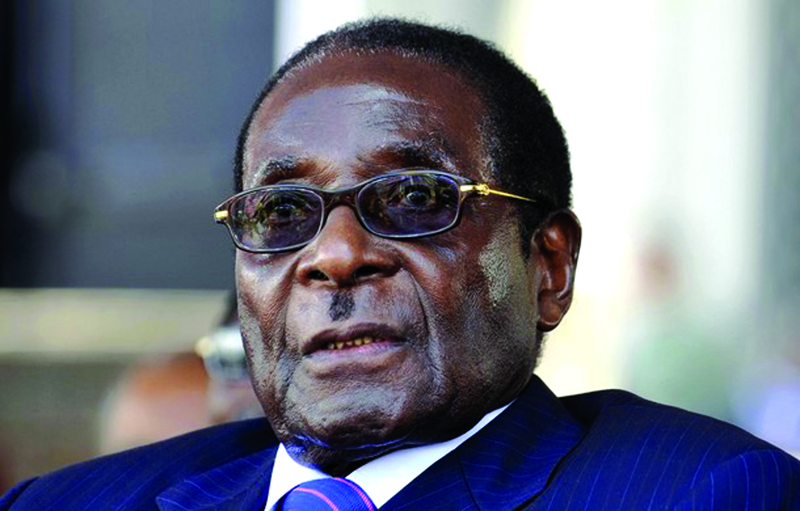
PRESIDENT Robert Mugabe is reportedly set to leave the country on another trip to Southeast Asia this week — hardly a month after returning from Singapore where he had gone for a medical check-up and to pick up his wife recovering from a surgical operation, NewsDay has learnt.
BY OBEY MANAYITI
The trip, that will apparently end with a State visit to Japan, is scheduled to last up to three weeks as Mugabe will pass through several countries in that region for his frequent medical check-ups.
He spent his annual leave in the region between December and January.
But analysts yesterday said Mugabe’s frequent absences from Zimbabwe could trigger a power vacuum in the country that could result in political instability.
Although Presidential spokesperson George Charamba would neither confirm nor deny the impending trip, government officials yesterday said Mugabe would make a stopover in Singapore for a medical check-up before proceeding to Japan.
Charamba said: “I am hearing it for the first time from you that the President will travel to the Far East.”
However, another senior official said: “The President will travel to the Far East on a State visit. Whether he will make a stopover, where and for what, I can’t tell you.”
- Chamisa under fire over US$120K donation
- Mavhunga puts DeMbare into Chibuku quarterfinals
- Pension funds bet on Cabora Bassa oilfields
- Councils defy govt fire tender directive
Keep Reading
Academic and political analyst Ibbo Mandaza warned that the rate at which Mugabe was leaving the country in the hands of Vice-President Emmerson Mnangagwa was “worrisome” as it would likely create a governance problem.
Mandaza said Mnangagwa would be hesitant to make and implement key decisions for fear of being viewed as plotting Mugabe’s ouster. He said the frequent absence of the President would create a “politically dangerous” situation for Zimbabwe.
“He is aged, old and frail and normally as in other countries, he would have retired. What is not clear is why he is still clinging to power,” Mandaza queried.
“It is a dangerous situation. Politically, you cannot leave a person acting all the time.”
Political scientist Eldred Masunungure also said Mugabe’s frequent absences as the country’s chief executive would soon create a leadership vacuum.
Masunungure cited the case of former Vice-President Joice Mujuru, who was stripped of her government and party posts last December after allegations of creating another centre of power and plotting Mugabe’s assassination.
“Whoever will be acting will be very timid to take decisive action on policy issues and that will create a vacuum, unless he [Mugabe] invests requisite power and authority to act within the area that the Acting President is allowed within the Constitution,” Masunungure said.
“Whoever is Acting President will be too cautious even on the powers vested in him for fear that the steps will be misread as creating another centre of power.”
Another political analyst, Charles Mangongera, said Mugabe’s absence would affect the running of government as critical decisions would have to be put on hold.
He added Mugabe’s frequent absences would work in the favour of Mnangagwa, who is also working to consolidate power for himself. “This will give Mnangagwa free rein to consolidate his power,” Mangongera said.
A United States think-tank last week warned that political instability and potential violence could threaten Zimbabwe in the coming 12 to 18 months.
The Council on Foreign Relation’s Centre for Preventive Action said the risk factors associated with political instability in Zimbabwe were growing fast, as doubts remained over how long Mugabe’s tight control would last.
The report was authored by Institute for Defence Analysis researcher George Ward, a former US envoy to Namibia.
“Although President Mugabe has moved to strengthen his already tight grip on the levers of power within both the government and the ruling Zimbabwe African National Union-Patriotic Front (Zanu PF), doubts remain as to how long tight discipline will last.” The report stated: “Zimbabwe’s economy remains weak and vulnerable to potential shocks that might precipitate political instability as well.”
It added that Mugabe’s “guided democracy” had long been the decisive factor in resolving debates in Zanu PF, but he had lately taken his personal control to a new level.
“Significant opposition to Mugabe’s authoritarian rule would likely be met by repressive measures, but conceivably could trigger a crisis within the Zanu PF.”











